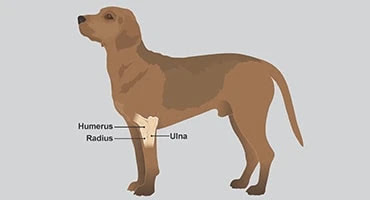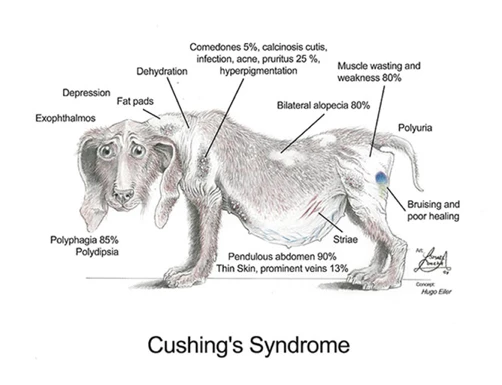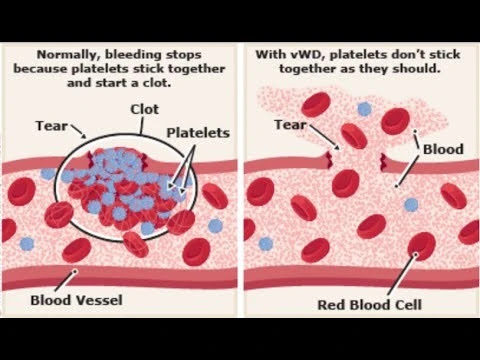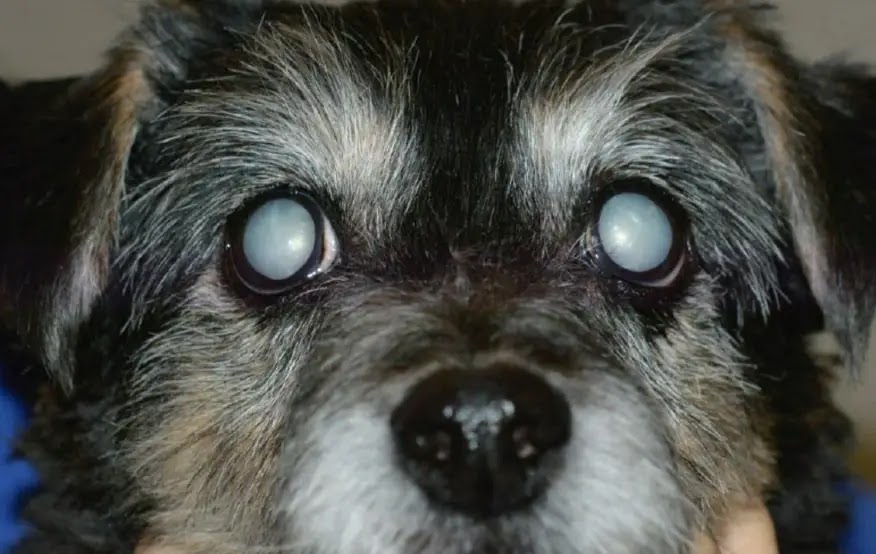The Bernedoodle is a hybrid breed dog, which is become very popular day by day,they have many qualities that make him a good family dog. Larger breed dogs tend to suffer from a number of specific health issues, and the same is unfortunately true for the Bernedoodle.
Before getting a Bernedoodle dog or any other breed, we are advised to do some research about their health issues, pros and cons about that very breed, so you already know what problems you might be face in the future with that breed.
Why is important to know about health-related issues and diseases for any breed? Because the puppies or dogs may prone one or more diseases in their lifetime or inherit one from the parents and it is important to keep a check of them all.
Therefore, in this post, we have covered all the small and large diseases, that develop the hereditary or inherited disease. furthermore, we mentioned the necessary laboratory tests on puppies and their parents.
Remember, the diseases listed below are listed in the public interest and Bernedoodle is less likely to develop these diseases, especially if you get a puppy from a reputable breeder. Bernedoodle is generally healthy and lives a perfect life.
Which Diseases Can a Bernedoodle Inherit from its Parent Breeds?
From Poodle
- Skin and Eye problems
- Tracheal Collapse
- Bloat
- Hip Dysplasia
- Immune System-related diseases
- Thyroid issues
From Bernese Mountain Dog
- Von Willebrand’s Disease
- Elbow and Hip Dysplasia
- Patella
- Cancer
- Epilepsy
- Sebaceous Adenitis
- Heart Diseases
- Progressive Retinal Atrophy (PRA)
Poodles and Bernese mountain dogs suffer from the aforementioned diseases, so the bernedoodle puppy may also prone to these diseases.
Now, let’s take a look at all the diseases and health issues one by one that Berneodoole can suffer from or inherit from its parent species.
Bernedoodle Health Issues and Their Treatment
Hip Dysplasia
Hip dysplasia is a common disease in large dog breeds, therefore, Bernedoodle can also be a victim of this painful disease. In hip dysplasia, the dog’s hip socket becomes abnormally formed which can lead to arthritis of the joints in extreme conditions. The dog may have difficulty moving due to severe pain. In addition, dogs usually sit abnormally during their regular walks or refuse to walk. In case of any such symptoms, it is recommended that you visit your veterinarian as soon as possible.
Hip Dysplasia Treatment
To diagnose hip dysplasia, your vet will perform a complete physical exam to check the flexibility of the joints. To come to a final decision, an X-ray of the dog’s waist is performed.
To treat hip dysplasia, you may be prescribed anti-inflammatory drugs, physical therapy, and joint fluid modifiers. In severe cases, the vet may prescribe surgery.
Elbow Dysplasia
Elbow dysplasia is another skeletal condition that commonly affects large dog breeds such as Labradors, German Shepherds, and Bernese Mountain Dogs. Bernedoodle may have the disease or inherit it from their parent species, the Bernice. It is more painful and complicated than hip dysplasia.
Elbow Dysplasia Treatment
The vet recommends you a CT scans and MRI scans to come to a decision.
To prevent this, surgery or physiotherapy may be prescribed depending on your dog’s condition. In addition, many rehabilitative measures can be taken to fully recover from this disease, which should be done according to the veterinarian’s instructions.
Bernedoodle Skin Diseases
Color Dilution Alopecia (CDA)
CDA stands for (Color Dilution Alopecia) is a skin disease that causes permanent hair loss from different parts of the body. Your dog may experience severe itching, peeling, or hair damage. Bernedoodle usually prone to Color Dilution Alopecia from their parent species.
Color Dilution Alopecia Treatment
To determine CDA, the vet performs dermatohistopathological tests and trichograms. Additionally, a skin sample may be sent to a pathologist for any conditional changes.
color dilution Alopecia cannot be cured. because it is an incurable disease Instead, your vet may treat CDA symptoms with shampoos, antibiotics, vitamin A, and essential fatty acids.
Sebaceous Adenitis
Poodles are susceptible to this rare inflammatory skin disease, so Bernedoodle usually follows sebaceous adenitis from them. In this disease, infected dogs develop rough fur or silver, white scales on the skin. In addition, various bacterial Sebaceous Adenitis Treatment Various diagnostic tests are performed by the vet to reach final conclusions such as fungus, bacterial culture, trichogram, skin cytology, and dermatohistopathology biopsy.
There are several oral medications as well as medicated shampoos to treat it.
Other General Diseases
Hyperadrenocorticism
Hyperadrenocorticism (HAC) it is commonly known as Cushing’s disease and is related to a hormone called cortisol its usually affect middle age dog. It is one of the most useful hormones, and it helps to reduce stress in the dog and modulates the dog’s immune system. Cortisol is highly harmful in the dog’s body, leading to neurological disorders and infertility. In addition, the dog suffers from hunger, thirst, urination and severe weakness.
HAC is usually caused by tumors of the pituitary or adrenal glands; However, long-term administration of exogenous glucocorticoids can cause HAC.
Hyperadrenocorticism Treatment
Hyperadrenocorticism can be easily diagnosed with the help of ACTH stimulant testing and low-dose dexamethasone suppression (LDDS).
For treatment, the vet will recommend surgical removal, and if it spreads to other parts of the body, your dog should live with the medication for the rest of his life.
Von Willebrand Disease
Von Willebrand Disease commonly known as (VWD), is a blood disorder disease. which caused by a deficiency of plasma protein von Willebrand factor (VWF), which helps the blood to clot. It can cause excessive bleeding from various parts of the dog’s body, including gums, nose, and very small wounds.There are many proteins in the blood that help prevent bleeding in the body. One of those proteins called the von Willebrand factor (VWF).
Von Willebrand Disease Treatment
Von Willebrand disease uses a screening test called the mucosal screen time to diagnose the disease.
In emergencies, a blood transfusion is recommended when several medications such as aspirin, ibuprofen, and penicillin are available.
Hypoadrenocorticism
Bernedoodle can also suffer from Hypoadrenocorticism, which is commonly known as Addison’s disease. In Addison’s disease, the dog’s adrenal system fails to produce the hormones needed to function, and its effects can be very irritating. The dog loses the balance of electrolytes and metabolism. Your dog may experience lethargy, weight loss, diarrhea, and vomiting.
Hypoadrenocorticism Treatment
Addison’s disease is diagnosed when it is reached a serious stage, which is called Addisonian Crisis.but Once they diagnosed, they can easily be treated. Percorten®-V (desoxycorticosterone pivalate – DOCP) is an injectable medication approved by the FDA for the treatment of Addison’s disease in dogs. The course included injunction every 3 to 4 weeks, depending on the dog’s condition. It provides oral glucocorticoid. With a little practice, DOCP injections can be given at home.
Epilepsy
Epilepsy is one of the most common neurological disorders in dogs. Bernedoodle can inherit this disease from the Bernese mountain dogs. Epilepsy or seizures can occur for a variety of reasons, including head injury, liver disease, brain cancer, high or low blood sugar, and poisoning. A dog with epilepsy may break, drool, chew its tongue, or paddle.
Epilepsy Treatment
There are many types of seizures, which can be diagnosed by certain blood and urine tests, neurological examination, cerebrospinal fluid analysis of dogs, and brain imaging using MRI.Treatment of epilepsy in dogs depends on the outcome of the diagnosis. Unfortunately, this cannot be treated, but epilepsy can be treated and controlled with anti-epileptic drugs. The best practice is to consult your veterinarian as soon as you notice symptoms of epilepsy in your dogs.
Cataract
A cataract is a dog’s disease in which a cloud develops in the lens of the dog’s eye, causing him to lose his eyesight. If the cataract is small, it may not be as distracting to the dog’s vision, but the cataract needs to be monitored, as it can lead to blindness when they are thick and dense. Usually, cataracts develop in dogs due to aging or many other diseases. Physically, it does not bother your dog, he does not feel pain, but his activity decreases his eyesight .
To protect your dog from partial or complete blindness, it should be treated immediately.
Cataract Treatment
First of all, the vet will ask you if your dog has any other diseases and will do a proper check-up of an eye. Some routine diagnostic tests such as urinalysis, electrocardiography, and complete blood profile may be required. There are no medicines available to treat cataracts in dogs. To treat cataracts in your bernedoodle, the vet may refer to conventional surgery or phacoemulsification, an advanced cataract surgery technique.
Conclusion
I hope you like this post, and if you’re planning to buy a bernedoodle puppy so this post is really helpful for you. because in this post we have covered all the health-related issues and their treatment regarding the bernedoodle. The thing to remember here is that your Bernedoodle dog may or may not get one of these diseases. We have prepared this list for public awareness so you already have an idea about all the health issues and diseases. If you get a Bernadette puppy from a reputable breeder, your dog is less likely to get these diseases or other genetic problems.
Related Articles











